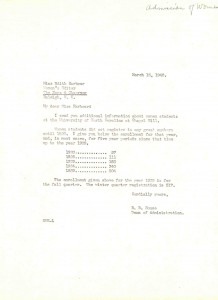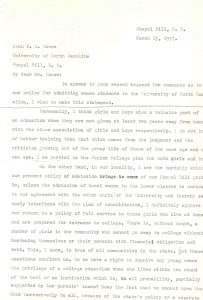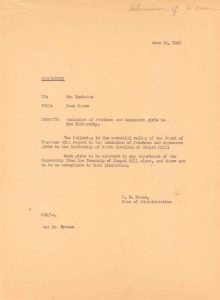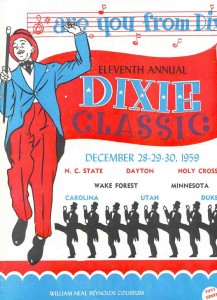
1959 program from the Southern Conference’s Dixie Classic. (Records of the Athletic Communications Office, #40308, University Archives.)
Eighty-nine years ago this past Monday, the Tar Heels basketball team won the first championship tournament of the then newly formed Southern Conference. The men’s basketball team went on to win seven more SoCon tournaments before joining the Atlantic Coast Conference, which it helped to form, in 1953. Collegiate sports regulations have changed over the decades but the reputation of Tar Heel athletes remains stellar across myriad sports.
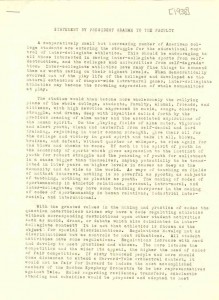
First page of President Graham’s statement to faculty. (Records of the Office of the Vice President for Finance, #40011, University Archives.)
College athletics has long played an important role in the university’s history. President Frank Porter Graham addressed faculty in 1938, extolling “the spirit of youth in the democracy of sports.” He believed that sound regulations and codes would allow a stadium to become a rallying place full of “high devotion expressed in music, songs, cheers, struggle, and drama, deep with loyalties called forth by the precious meaning of the alma mater.” Graham notes that codes of sportsmanship, like academic study, carry over into “human relations, industrial, inter-racial, and international.”
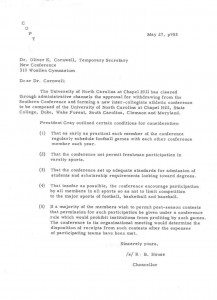
A new conference is born. (Records of the Office of the Vice President for Finance, #40011, University Archives.)
In 1953, UNC–Chapel Hill founded the Atlantic Coast Conference together with six other schools. In a copy of a letter to Dr. Oliver K. Cornwell, the temporary secretary of the as-yet unnamed conference, Chancellor R.B. House confirms the university’s withdrawal from the Southern Conference. Today, N.C. State, Duke, Wake Forest, Clemson, and Maryland, along with UNC, are still members of the ACC. Thus began an illustrious history that continues to the present.

